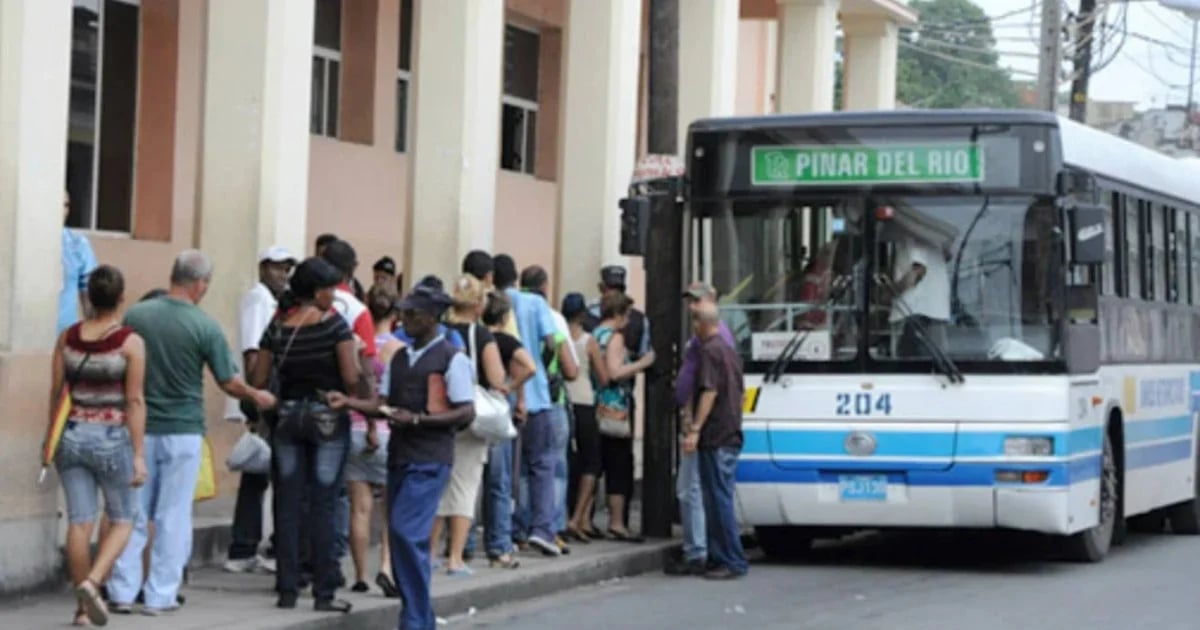The Provincial Directorate of Transportation in Pinar del Río has announced that public transport services will resume this Monday after several days of inactivity due to a severe fuel shortage across the country.
Through its Facebook page, the radio station Radio Guamá reported that the transportation company has restarted both urban and suburban services from the provincial capital to various municipalities. Last Thursday, September 12, the institution outlined several measures, including:
- Suspending public transport in the capital city starting Saturday, September 14.
- Halting intermunicipal routes from the capital to other areas, to be resumed once fuel availability improves.
- Canceling train services on the Pinar-Havana route.
These measures have now ended, and services are back to "normal," according to the post.
Challenges Facing Cuba's Transportation Sector
The state of transportation in Cuba is dire. Often, a lack of fuel is the culprit, but the outdated vehicle fleet, which suffers from a lack of spare parts and excessive wear and tear, also plays a significant role.
Cuban President Miguel Díaz-Canel has acknowledged the crisis in this sector, attributing it to global issues. During one of his YouTube programs, 'Desde la Presidencia,' which he hosts, Díaz-Canel noted that the sector is experiencing "the worst moments in recent years."
As of the end of April, 52 percent of the routes managed by provincial transportation companies were inactive, according to Eduardo Rodríguez Dávila, the Minister of Transport (Mitrans), as reported by the official newspaper Granma. Previously, 5.9 million passengers were transported daily; now, that number has dwindled to just 2.7 million, forcing many to rely on private transport, which is often prohibitively expensive for most Cubans.
The crisis has reached such a level that the special municipality of Isla de la Juventud faces a severe risk of isolation. Rodríguez Dávila emphasized that ensuring transportation to and from the island has always been a priority, but aging vessels and inadequate maintenance are pushing the situation to the brink.
Adding to the controversy, Gerardo Hernández Nordelo, the national coordinator of the Committees for the Defense of the Revolution (CDR), recently sparked criticism by boasting about the organization's strength after managing to get a partially broken bus running in Villa Clara. "Where there are CDR members, there are no ghosts! And much less in Camajuaní!" Hernández wrote on social media, alongside a video showing him and a group of people pushing a bus.
Far from being amusing, this scene of pushing a bus underscores a severe issue that directly impacts the everyday lives of thousands of Cubans who depend on a failing transportation system.
FAQs on Cuba's Transportation Crisis
In light of the ongoing issues with Cuba's transportation system, here are some frequently asked questions and their answers to provide more clarity on the situation.
Why was public transportation suspended in Pinar del Río?
Public transportation was suspended due to a severe fuel shortage, which made it impossible to keep services running.
What measures were taken by the Provincial Directorate of Transportation?
The measures included suspending public transport in the capital city, halting intermunicipal routes, and canceling train services on the Pinar-Havana route.
How has the transportation crisis affected daily life in Cuba?
The crisis has forced many to rely on expensive private transport, severely impacting daily commute and accessibility, particularly in isolated areas like Isla de la Juventud.
What is the current state of transportation routes in Cuba?
As of the end of April, 52 percent of transportation routes were inactive, down from a previous daily average of 5.9 million passengers to just 2.7 million.
